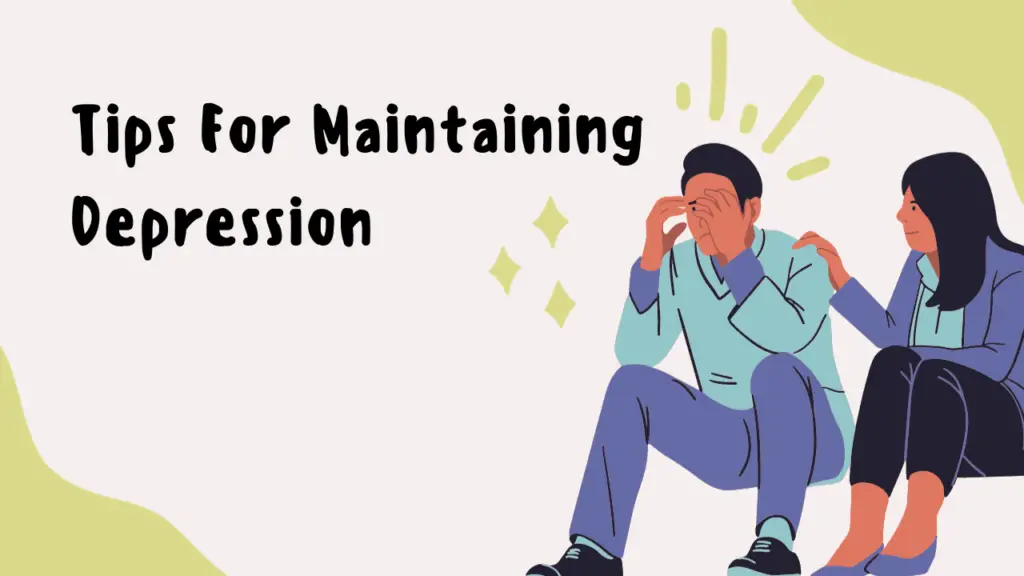Introduction
Depression is a widespread mental health condition that affects millions of people worldwide. It’s a topic that needs more understanding and attention. In this article, we will delve into the various aspects of Depression, including its definition, types, causes, symptoms, impact, diagnosis, treatment, and coping strategies.
Understanding Depression
What is Depression?
Depression, often called major depressive disorder (MDD), is a mental health condition characterized by persistent sadness, hopelessness, and a lack of interest or pleasure in daily activities. It affects a person’s thoughts, feelings, and behavior, often leading to emotional and physical problems.
What are the Types of Depression
Depression isn’t a one-size-fits-all condition. There are different types, including:
1. Major Depressive Disorder (MDD)
2. Persistent Depressive Disorder (PDD)
3. Bipolar Disorder
4. Seasonal Affective Disorder (SAD)
What are the Common Causes of Depression?
Depression can have numerous causes, such as genetic factors, chemical imbalances in the brain, trauma, and life stressors. Understanding these causes is crucial to finding effective treatments. Some leading causes include:
- Biological Factors: Genetics and brain chemical imbalances.
- Psychological Factors: Negative thinking, trauma, and stress.
- Environmental Factors: Childhood adversity and social isolation.
- Medical Conditions: Chronic illnesses and neurological issues.
- Substance Abuse: Alcohol and drugs.
- Medications: Some drugs may trigger Depression.
- Hormonal Changes: Pregnancy, postpartum, and menopause.
- Lifestyle Factors: Poor diet and lack of exercise.
- Personality Traits: Perfectionism and self-criticism.
- Coping Skills: Inadequate ways to handle challenges.
What are the signs and symptoms of Depression?
Recognizing the signs and symptoms of Depression is essential for early intervention. Common symptoms include:
- Persistent sadness
- Fatigue
- Changes in appetite and weight
- Sleep disturbances
- Irritability
- Difficulty concentrating
What are the Specific Symptoms Of Depression?
Emotional Symptoms:
- Persistent Sadness: Feeling consistently sad, empty, or down.
- Loss of Interest: Losing interest in activities or hobbies you once enjoyed.
- Hopelessness: Feeling a sense of hopelessness or despair about the future.
- Irritability: Becoming easily irritated or agitated.
- Guilt or Worthlessness: Feeling excessively guilty or worthless.
Physical Symptoms:
- Changes in Sleep: Experiencing insomnia (difficulty sleeping) or hypersomnia (excessive sleep).
- Fatigue: Feeling unusually tired, even after a whole night’s rest.
- Changes in Appetite: Significant weight loss or gain due to changes in appetite.
- Aches and Pains: Unexplained physical complaints like headaches or stomachaches.
Cognitive Symptoms:
- Difficulty Concentrating: Struggling to focus, make decisions, or remember things.
- Negative Thoughts: Persistent negative and self-critical thoughts.
Behavioral Symptoms:
- Social Withdrawal: Withdrawing from social activities, friends, and family.
- Loss of Productivity: Decline in work or school performance.
- Substance Abuse: Turning to alcohol or drugs as a way to cope.
- Self-Harm or Suicidal Thoughts: Engaging in self-harming behaviors or thinking about suicide.
The Impacts of Depression?
Emotional Impact:
- Overwhelming sadness, despair, and a sense of hopelessness.
- Increased irritability and difficulty in managing emotions.
- Decreased self-esteem and feelings of worthlessness.
Physical Impact:
- Fatigue and low energy levels can affect daily functioning.
- Sleep disturbances leading to insomnia or excessive sleep.
- Changes in appetite, potentially resulting in weight loss or gain.
- Unexplained physical symptoms, such as headaches or digestive problems.
Social and Interpersonal Impact:
- Social withdrawal and isolation lead to strained relationships.
- Difficulty in maintaining social connections and friendships.
- Decreased work or school performance can lead to job or academic problems.
Psychological Impact:
- Impaired cognitive function, affecting concentration and decision-making.
- Persistent negative thought patterns and self-criticism.
- Increased risk of anxiety disorders, substance abuse, and self-harm.
Physical Health Impact:
- Depression is associated with various physical health issues, including heart disease, diabetes, and chronic pain.
- It can weaken the immune system, making individuals more susceptible to illnesses.
Suicidal Thoughts and Behavior:
- Depression is a leading risk factor for suicidal thoughts and actions, making it a life-threatening condition.
Impact on Quality of Life:
- Reduced overall quality of life, with individuals finding it challenging to experience joy and fulfillment.
Financial Impact:
- Job loss or decreased productivity at work can lead to financial difficulties.
Impact on Loved Ones:
- Depression can strain relationships with family and friends who may struggle to understand or cope with the condition.
Long-Term Consequences:
- If left untreated, Depression can become chronic, increasing the risk of recurrent depressive episodes.
Depression can profoundly impact an individual’s life, affecting relationships, work, and overall well-being. It can lead to social isolation and, in severe cases, suicidal thoughts.
How to overcome Depression?

- Seek Professional Help: Consult a mental health professional, such as a therapist, psychologist, or psychiatrist, for an accurate diagnosis and treatment plan.
- Therapy and Counseling: Psychotherapy, including cognitive-behavioral therapy (CBT), interpersonal therapy, and dialectical behavior therapy (DBT), can help you identify and change negative thought patterns and develop coping skills.
- Medication: Sometimes, a healthcare provider may recommend antidepressant medications to help balance brain chemistry. These are often used in combination with therapy.
- Lifestyle Changes: Adopt a healthy lifestyle by engaging in regular physical activity, eating a balanced diet, and getting adequate sleep. These factors can have a positive impact on mood.
- Social Support: Connect with friends and family for emotional support. Isolation can worsen Depression, so maintaining social connections is crucial.
- Set Realistic Goals: Establish achievable daily and long-term goals to give yourself a sense of purpose and accomplishment.
- Mindfulness and Relaxation Techniques: Practice mindfulness meditation, deep breathing, or progressive muscle relaxation to reduce stress and improve emotional well-being.
- Avoid Alcohol and Substance Abuse: Substance use can worsen depression symptoms. Avoid or seek help for substance abuse issues.
- Identify Triggers: Recognize the situations or stressors that exacerbate your Depression and work on strategies to manage or avoid them.
- Self-Care: Prioritize self-care and engage in activities that bring you joy and relaxation.
- Educate Yourself: Learn more about Depression to understand better your condition and how to manage it.
- Support Groups: Consider joining a support group for people with Depression. Sharing experiences with others who understand can be comforting.
- Monitor Progress: Keep track of your symptoms and progress to assess the effectiveness of your treatment plan.
- Be Patient: Recovery from Depression is often a gradual process, so be patient with yourself and trust that improvement can occur over time.
Depression in Children and Adolescents
Depression is not limited to adults. It can affect children and adolescents, and early intervention is critical for their development. Depression in children and adolescents is a significant mental health issue. Its causes are diverse, and symptoms can include sadness, irritability, and social withdrawal. Early diagnosis by professionals and treatment, often through therapy, are crucial. Communication and support are vital, and preventative efforts focus on a supportive environment and stress reduction. It’s essential to watch for signs and seek professional help when needed.
The Role of Diet and Exercise in Depression
A healthy lifestyle can significantly impact mental health. Balanced nutrition and regular physical activity contribute to overall well-being.
1. Role of Diet:
- Nutrition and Mood: A balanced and nutritious diet can positively impact mood and brain function. Consuming foods rich in essential nutrients, such as omega-3 fatty acids, antioxidants, and B vitamins, can support mental well-being.
- Omega-3 Fatty Acids: Foods like fatty fish (salmon, mackerel), flaxseeds, and walnuts contain omega-3 fatty acids, which are associated with lower rates of Depression. These fatty acids can help regulate neurotransmitters in the brain.
- Antioxidants: Fruits and vegetables are high in antioxidants, which can reduce oxidative stress and inflammation, potentially alleviating depressive symptoms.
- Complex Carbohydrates: Whole grains, legumes, and starchy vegetables release serotonin, a neurotransmitter that contributes to feelings of well-being.
- Protein: Lean protein sources provide the amino acid tryptophan, a precursor to serotonin, which can improve mood.
- Hydration: Dehydration can affect mood and cognition, so staying hydrated is essential. Drink more water to supply enough water for the cerebral aqueduct which is responsible for maintaining the volume of CSF. It will nourish the brain and give support to fight against depression.
2 Role of Exercise:
- Endorphin Release: Physical activity stimulates the release of endorphins, which are natural mood lifters. These “feel-good” chemicals can reduce symptoms of Depression and anxiety.
- Stress Reduction: Exercise helps reduce stress by lowering cortisol levels. High stress is linked to an increased risk of Depression.
- Improved Sleep: Regular exercise can enhance sleep quality, and sleep disturbances are often associated with Depression.
- Increased Self-Esteem: Achieving fitness goals and feeling more physically capable can boost self-esteem and self-confidence.
- Social Interaction: Participating in group activities or team sports during exercise can provide social interaction and support, which can benefit those with Depression.
- Distraction from Negative Thoughts: Physical activity can temporarily shift focus away from negative thought patterns and rumination.
- Long-Term Brain Health: Exercise has been associated with improved brain health and can potentially protect against cognitive decline, which is relevant for individuals with Depression.
Conclusion
Depression is a complex and challenging condition, but it is treatable. Seeking help, offering support, and making positive lifestyle changes are all part of the journey towards recovery.
FAQs
1. Can Depression be cured completely?
Depression is treatable, and many people recover with appropriate treatment. However, some may experience recurring episodes.
2. Is medication the only solution for Depression?
Medication is one of the treatment options, but therapy and lifestyle changes are also essential components of treatment.
3. What can I do to support a loved one with Depression?
Being there for them, offering empathy, and encouraging them to seek professional help are crucial.
4. How does Depression affect children and adolescents differently?
Depression in young people can manifest differently and may be mistaken for normal adolescence. Early intervention is vital.
5. What can employers do to support employees with Depression?
Creating a supportive work environment, offering flexible schedules, and providing resources for mental health can make a significant difference.




